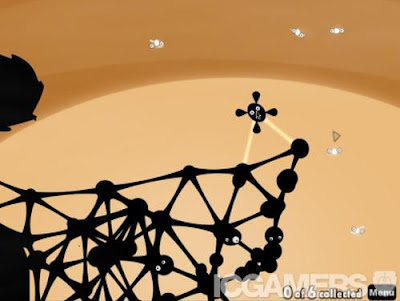by c.J
published by Rinie 8th October 2009
There's always an intimidating threat to both types of PC game distribution, and one that's often identified as a smoking gun for those troubled retail sales: piracy. Numerous developers and publishers have waded into the argument claiming Bittorrent is harming them.
Research into the scale and most of all the real-world fiscal effects of piracy, remains reasonably limited, and this shortage of empirical proof one way or another has made the unending online debate on the matter peculiarly confusing and often vicious. On the one hand, you have 2D Boy, the chaps behind indie mega-gem World of Goo claiming that over 80% of the game's players had pirated it, but calmly stating that it hadn't harmed any sales.
For argument sake, there's the developer, Cliff Harris of one-man studio Positech (best-known for thoughtful indie fare such as life management game, Kudos and the sprawling politicking of Democracy): ‘Nobody can say with a straight face that having well-known sites where people can get your product for free has zero effect on sales. To pretend anything else is just silly’ he reckons. ‘One of the things nobody ever talks about is the psychological effect piracy has on games developers. If you work 10 hours a day for a year to make something then find people taking it for free 24 hours after release, you just cannot begin to describe how depressing that feels to them.’
The crux of piracy debate often pivots on the question of whether someone who Bittorrents a given game would otherwise have been a customer of it. On the one hand, that person is clearly not paying to play your game. On the other, there's every chance that the only reason they're playing it is because they didn't have to pay. Meantime, the anti-piracy camp calls it theft, while the pro-piracy guys claim that making a digital duplicate of immaterial code is hardly the same thing as physically swiping an item. It's a semantic and ethical war which only further obfuscates an issue that's increasingly dominating all discussion about the PC as a gaming platform. Recently, people claimed that PC hardware manufacturers were taking advantage of the current ubiquity and ease of piracy to help flog more of their gear.
Still, at one glance on the most leeched torrents reveals that it's the big-name games such as Call of Duty that attract the heaviest traffic of illegal downloaders.
Indie developers might have more to lose, but not yet being mainstream is to their advantage. That's perhaps one of the reasons why there's a thriving indie scene, both paid and free, despite Big Publishing's doomsaying about the PC. There is widespread acceptance of indie gaming and it's easier for indies to be taken seriously as a creative force. Also, advances in PCs mean that you no longer have to optimize the hell out of C++ to run a game at 30FPS, so you don't need phenomenal coding skills to be an indie developer any more. There are lots of reasons for the big budget games to die out. The graphics arms race is definitely slowing down. In terms of profitability, indie devs like 2DBoy are probably more profitable per employee than Activision.
Declining retail sales and the Bittorrent bogeyman aren't, then, a death knell for PC gaming. Whether it's growing into something new, beautiful and impressively independent or returning to the ideals it was founded upon back before Doom brought about the age of graphics and adrenaline, it's in probably the most exciting state it's been in for years.
Stick Empires – Download
8 years ago



0 comments:
Post a Comment